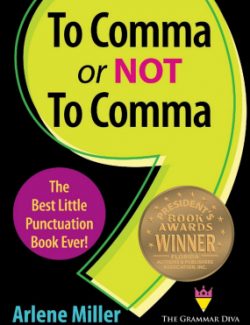Don’t give up.

I received a request to review this tricky verb pair, so we will straighten it all out here.
Lay and lie are present tense verbs. In grammatical terms one is transitive and one is intransitive. Lay is transitive. Lie is intransitive. What does that mean?
Lay is transitive and therefore takes a direct object. What is a direct object? A noun or pronoun that receives the action of the verb.
Lie is intransitive and therefore does not take a direct object. There is no noun or pronoun right after it, although there may be some other kind of word or phrase.
In other words, you must lay something. But you don’t lie something:
Lay your head on the pillow. (Lie what? head, a noun) Lie on the sofa. (Lie what? There is no what. There is no object. There is a prepositional phrase telling where.)
More examples:
The rocks are lying on the road.
I am going to lay the rocks in a circle.
I am lying in the sun.
Please lay your purse on the table.
Okay. Now let’s move to the past tense, which is the problem tense. The past tense of lie is lay. The past tense of lay is laid.
The rocks were lying on the road.
I laid the rocks in a circle.
Yesterday I lay in the sun. (Or yesterday, I was lying in the sun.)
She laid her purse on the table and forgot it there.
Last, let’s go to the past participle (or present perfect tense). That is the one using “has” or “have.” The past participle of lie is lain (have lain). The past participle of lay is laid.
The rocks have lain in the same place for weeks.
I have laid the rocks in a circle around the flowers.
I have lain in the sun every afternoon and have quite a good tan.
She has always laid her purse in the same place at home, so she won’t lose it.
To sum up:
I lie in the sun. I am lying in the sun.
Yesterday I lay in the sun. Yesterday I was lying in the sun (not laying).
Every day, I have lain in the sun.
Lay your book on the table. I am laying your book on the table. I was laying your book on the table.
Yesterday I laid this book here, but it is now gone.
I have always laid this book in the same place.




So, Bob Dylan is wrong ! Lay lady lay, lay across your big brass bed . . .
Yes, he is . But do you think you can get used to Lie, Lady, Lie???
And back in the seventies, pop-songs did not always help, either: ‘Lay, lady, lay, … across my big brass bed.’ But I guess Bob Dylan had to (ab)use it for its internal rhyme with ‘Stay, lady, stay …’
Yup. Dylan was lacking his his grammar. But “If I Were a Carpenter” used the subjunctive correctly, so we can be proud of that!
When I hear people say they’re going to go lay out by the pool, I picture them as chickens in their nests of beach towels , laying eggs for tomorrow’s breakfast.
To remind my students that “lie” would be the correct choice here and “lay” should be saved for past tense in this case (I lay out all afternoon yesterday and got a bad sunburn) , I taught them:
People never lay
Unless they did it yesterday.
Thanks! Good tip!